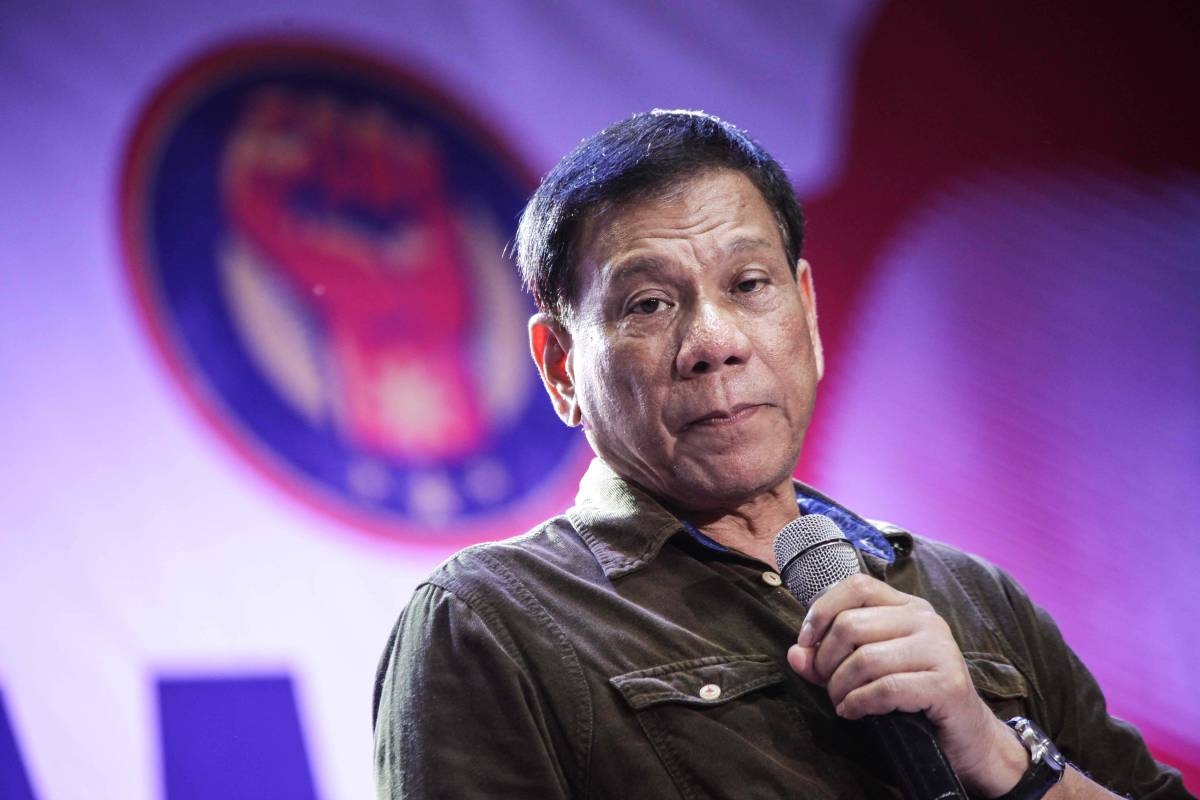Former president Rodrigo Duterte expressed his strong opposition to the suspension of his program by the Movie and Television Review and Classification Board (MTRCB) earlier this week. He argued that the agency violated his constitutional rights, sparking a debate about freedom of expression and press freedom in the Philippines.
Duterte’s program, Gikan sa Masa, Para Sa Masa, was one of two shows aired on Sonshine Media Network International (SMNI) that the MTRCB suspended. The decision came after the board received complaints about two episodes of the program.
In response to the suspension, Duterte asserted, “One, you have to be in gross violation of my constitutional right to free expression. Second, of course, is the outfit I’m using as a platform for violation for press freedom.” He also mentioned that he is currently facing a complaint of grave threats from a lawmaker at the House of Representatives.
Duterte emphasized that the suppression of the right to exercise freedom of expression should not be allowed to have preliminary or permanent status. He firmly believes that the right to free expression is absolute and should be protected without any limitations. These remarks were made during an interview posted on SMNI’s social media platforms on Thursday, the same day the National Telecommunications Commission (NTC) issued a 30-day suspension of the television network’s operations for violations of its congressional franchise.
The MTRCB’s decision to suspend Duterte’s program for 14 days has raised questions about the boundaries of free speech in the country. While freedom of expression is a fundamental right, it is not absolute and can be subject to certain limitations, as outlined in the Philippine Constitution. The MTRCB has the authority to regulate and classify television programs to ensure that they adhere to ethical and moral standards.
However, critics argue that the suspension of Duterte’s program may be an infringement on press freedom. They believe that the government is using regulatory bodies to silence dissenting voices and limit the dissemination of information that may be critical of the administration. This raises concerns about the erosion of democratic principles and the stifling of free speech in the country.
It is important to note that the issue of freedom of expression is not unique to the Philippines. Many countries grapple with finding the right balance between protecting this fundamental right and maintaining social order. Laws and regulations regarding freedom of expression vary across different jurisdictions, taking into account cultural, social, and political contexts.
In the case of the Philippines, it is crucial to consider the country’s history and the challenges it has faced in terms of media freedom. The Philippines ranks 136th out of 180 countries in the 2021 World Press Freedom Index, indicating a significant need for improvement in this area. The suspension of Duterte’s program further highlights the ongoing struggle to ensure a free and independent media landscape.
As the debate continues, it is essential to find common ground that respects both freedom of expression and the need for responsible media practices. Open dialogue and constructive engagement between regulatory bodies, media organizations, and the public can contribute to a better understanding of the complexities surrounding this issue.
In conclusion, the suspension of former president Duterte’s program by the MTRCB has sparked a discussion about freedom of expression and press freedom in the Philippines. While the MTRCB has the authority to regulate television programs, critics argue that the suspension may be an infringement on press freedom. As the country navigates this complex issue, it is crucial to strike a balance that protects fundamental rights while upholding ethical and moral standards in the media industry.







